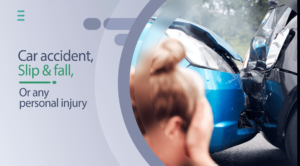Accidents happen daily on our roads and highways, but most are minor or minor fender benders and don’t require any intervention from law enforcement officials or insurance companies. But when someone is seriously injured or killed due to another motorist’s negligence — whether intentional or not — it’s vital that we know who was at fault so that they can be held liable for the damages they caused.
In most cases, determining fault is relatively easy because there is ample evidence that clearly shows who was at fault and who wasn’t. However, there are some cases where it’s not so simple to determine who was at fault in an accident, and this can lead to lengthy court battles or even civil suits being brought against both parties involved in the accident. This warrants the need to hire a Scarborough personal injury lawyer who can help guide you through filing a claim and ensuring that you receive what’s rightfully owed to you.
The first thing to understand is that fault doesn’t have to mean intentionality; it could simply mean negligence — doing something wrong without knowing it. This is especially true in cases involving multiple parties, and both sides claim innocence.
Following are the reasons determining car accident fault is important:
• It helps determine who may be liable for your injuries and damages. If the person who caused your injuries was at fault, then they are accountable for paying damages to compensate you for those injuries. An injury lawyer with experience dealing with insurance companies and helping victims of auto accidents can help negotiate with the other party’s insurance company and get them to offer a fair settlement.
• Determining fault may help avoid future disputes about who caused an accident. If both parties agree that one driver was at fault, then it is less likely that there will be future disagreements about what happened and who was responsible for causing an accident.
• Determining fault can help prevent impaired drivers from getting away with causing accidents without being held accountable for their actions. A driver who causes an accident but is not found guilty of negligence has no incentive to drive safely in the future and may continue causing accidents or injuring other people on the road.
• If your car was totaled in an accident, knowing who is at fault can help determine whether or not your car insurance company will pay out its maximum policy limit — which could be helpful if you don’t have enough coverage on your policy. An injury lawyer can help determine if you have a claim against another driver. If so, they will work with you to gather evidence and build your case for trial.




